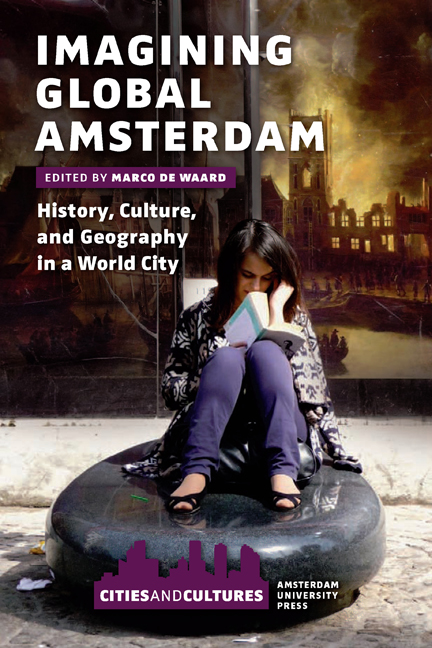2 - Imagining Social Change in Early-Modern Amsterdam: Global Processes, Local Perceptions
Published online by Cambridge University Press: 19 January 2021
Summary
This chapter considers some of the different kinds of ways in which citizens in seventeenth-century Amsterdam experienced palpable social changes in the city as the effects of larger global processes. From its sixteenth-century status as a relatively unimportant fishing port, by the early seventeenth century Amsterdam had risen to the status of a centre of global power, a change that took place within the span of a few decades only. In the course of the seventeenth century the city would develop further into a potent, in some accounts even hegemonic commercial empire (ca. 1625-75), whose proto-industrial capitalist economy and innovative administration of financial resources were geared towards the accumulation of wealth. Global processes, however, not only led to the establishment of new institutions and to a modernization of the economy, they also had a significant impact on how urban residents identified with the city ‘on the ground’. It was through changes in their immediate environment that Amsterdammers learned to see their city as a global hub. If this applies to the years of unhindered prosperity and growth, it applies in a different way to the late seventeenth and early eighteenth centuries, when the patterns of world hegemony could be seen to shift to the city's disadvantage: as Amsterdam witnessed the disintegration of its global networks, citizens encountered the effects of economic decline and political instability – reminded, once again, of how intricately the local and the global were intertwined.
The present chapter, following some brief theoretical reflections, will argue that one especially important way in which seventeenth-century Amsterdammers thought about social change in their city was to relate it to a novel logic of accumulation – a logic which, because of the city's central position in a global network, worked largely in its favour. What was particular about Amsterdam was contemporaries’ awareness of how social changes within the locality were part and parcel of a larger, global dynamic of change, an awareness that profoundly affected people's sense of time, history, and identity, as we will see. In what follows, this chapter will use seventeenth-century Amsterdam as a focus for studying the development of a global consciousness, or what I have discussed elsewhere under the rubric of a ‘global animus’, in Roland Robertson's term (Ufer 2009).
- Type
- Chapter
- Information
- Imagining Global AmsterdamHistory, Culture, and Geography in a World City, pp. 27 - 44Publisher: Amsterdam University PressPrint publication year: 2012



